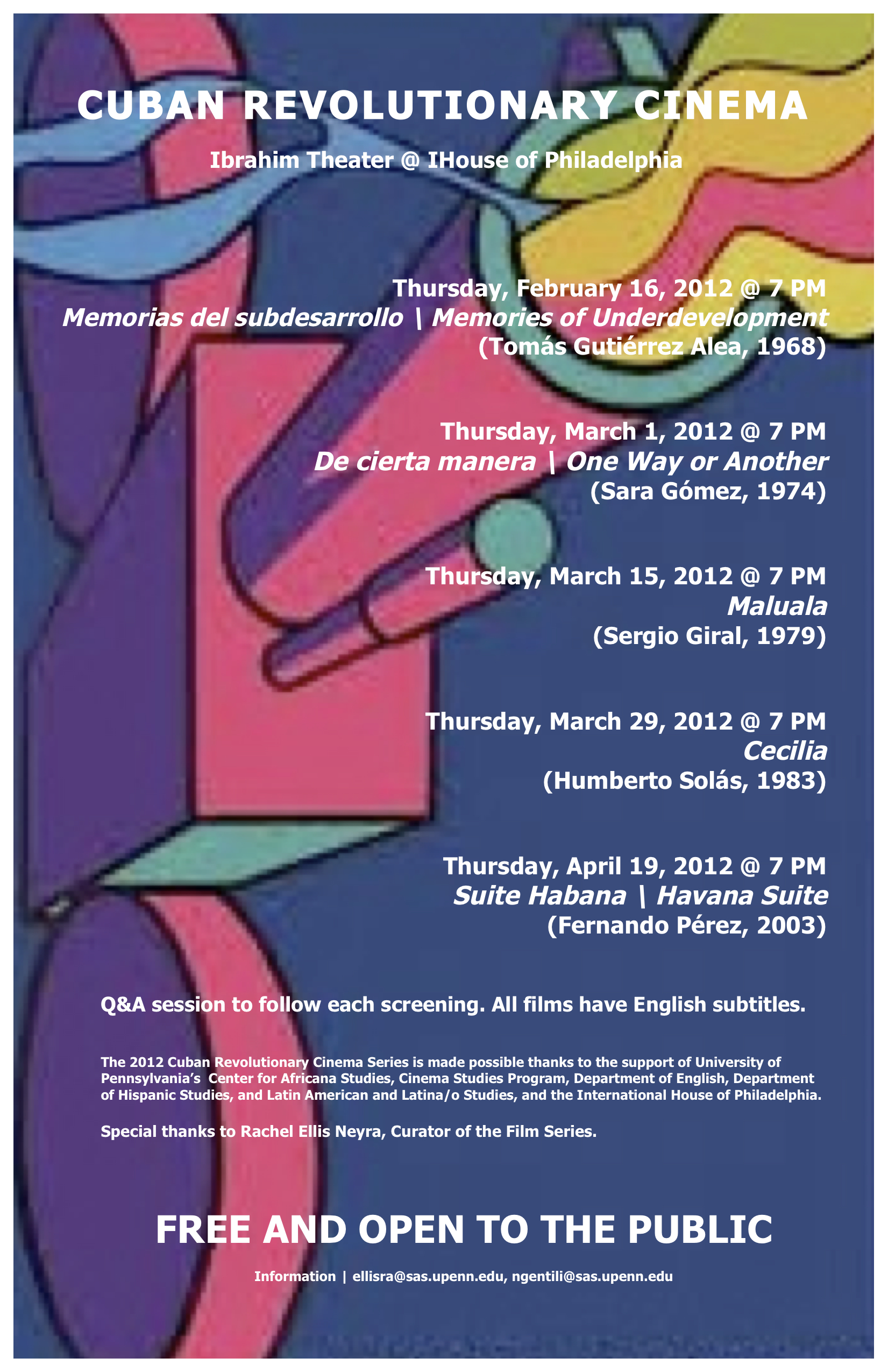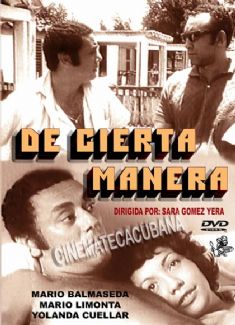Event
De cierta manera | One Way or Another
(Sara Gómez, 1978)
Sara Gómez’s De cierta manera [One Way or Another] layers documentary and fiction, continuously reminding the viewer of the desire for each, and for the two together, when done well, if also insistently “imperfectly.” Moving adeptly between footage of the demolition of slums just outside of Havana in the early years of transition and reconstruction of the Revolution, footage of the rituals of the historied yet secret and all-male religious society, Abacuá, one dating to slavery, and the story of a revolutionary romance between the characters, Mario, a bus driver who can question but not break from the discourse of machismo, and Yolanda, a school teacher who struggles with the effects of that discourse on her young students’ lives, the film nevertheless resists resolution. Like Charles Burnett’s Killer of Sheep and Kent McKenzie’s The Exiles, it does not do so through the agitation of the viewer, but rather in the well-woven structure of the film, where actors and subjects move the strands of the story together. Cut, finally, in 1977 by directors Tomás Gutiérrez Alea and Julio García Espinosa, it was well advanced just as its director died abruptly of an asthma attack. Gómez, also a trained pianist, made ten documentary films between 1964 and the start of her work on De cierta manera.
De cierta manera will be introduced by Tsitsi Jaji, Professor of English at the University of Pennsylvania. Professor Jaji, literary scholar, poet and pianist, researches transnational black exchanges, Africana feminism, and the relations between music and literature. Her forthcoming book, Africa in Stereo, "traces Ghanaian, Senegalese and South African responses to African American music in print and film."
The 2012 Cuban Revolutionary Cinema Series is made possible thanks to the support of University of Pennsylvania's Center for Africana Studies, Cinema Studies Program, Department of English, Department of Hispanic Studies, and Latin American and Latina/o Studies, and the International House of Philadelphia.
Special thanks: Rachel Ellis Neyra, Curator of the Film Series.


